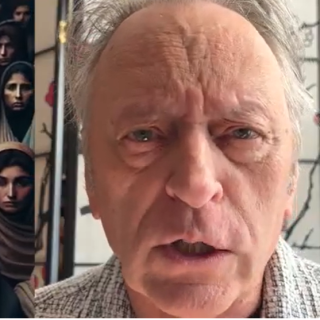Advertisement
In response to a criminal complaint filed by Columbus mayoral candidate Joe Motil against a city official, Columbus City Attorney Zach Klein referred the matter to Whitehall assistant prosecutor Brad Nicodemus, supposedly for an independent review. Nicodemus had previously been a special prosecutor who declined to pursue charges of alleged misconduct by Columbus police during the 2020 protests over George Floyd’s murder.
Because Nicodemus’ dismissal of Motil’s complaint had serious problems, concerns have resurfaced about his dismissal of the police cases.
Motil’s complaint stemmed from his removal from an April 28 press conference at the Columbus Police Academy. Mayor Andrew Ginther and other city officials were there to discuss the city’s disturbing rise in gun violence. Motil had attended similar events without incident before becoming a candidate for mayor.
But Glenn McEntyre, an assistant director for the city’s Department of Public Safety, told Motil to leave because he wasn’t a member of the press. Motil said McEntyre grabbed his arm in the process.
Motil was offended and told The Columbus Dispatch: "He grabbed me. He grabbed my arm, and for no reason. I told him to get his [expletive] hands off of me and don't [expletive] touch me again, and he let go."
The criminal complaint initially alleged assault. By the time he met with Nicodemus, though, Motil had decided the requirements of the assault statute hadn’t been met. So he asked Nicodemus to charge McEntyre with disorderly conduct.
The revised charge had merit because the law on disorderly conduct prohibits, among other things, causing annoyance or alarm by physically offensive conduct. Elements of the crime are met when a stranger grabs someone’s arm for no reason. But Nicodemus evaded that logical conclusion.
Nicodemus’ initial letter declining to bring charges addressed only the subject of assault, even though Motil had said he didn’t want to go forward with an assault charge. And in discussing the letter with the media, Nicodemus downplayed the seriousness of what happened by describing it as a “touch.” Nicodemus considered his work finished after this avoidance of the real issue and misrepresentation of the evidence.
But Motil again asked Nicodemus for a decision on the issue of disorderly conduct. Nicodemus responded with a brief letter saying probable cause wasn’t present to charge disorderly conduct.
Probable cause seemed present, though, after Motil swore that the incident occurred and did all he could to try to find supporting witnesses and security video, if any existed. McEntyre, on the other hand, wouldn’t talk to the media or prosecutor about what happened. An accused can be convicted based solely on a person’s credible testimony.
In fact, Nicodemus viewed the evidence as strong enough for him to proclaim publicly that Motil “was touched on the arm.” So why couldn’t he conclude a grab occurred, as Motil actually said?
Additional indications of bias are in correspondence Nicodemus sent regarding the investigation. He sometimes referred to the alleged perpetrator as “Glenn,” but the complainant was not called just “Joe.” It’s helpful for a person to be on a first-name basis with the prosecutor investigating a criminal charge against him, while the complainant isn’t.
Motil said in response to Nicodemus’ decision: “Those who claim to enforce the law in Columbus . . . apparently feel that it is all right for public officials to make physical contact with any citizen they wish without cause or consequences."
Nicodemus’ handling of Motil’s complaint gave the public more reason to question his decisions last year on alleged wrongdoing by Columbus police.
Klein had chosen Nicodemus to be a special prosecutor to investigate allegations of police misconduct during the 2020 Columbus protests over George Floyd’s murder by Minneapolis police. Nicodemus decided against pursuing charges in cases he reviewed.
Those decisions were eyebrow-raising partly because the Columbus city government had paid a $5.7 million settlement to 32 plaintiffs in a civil suit brought over police misconduct during the protests. The federal judge in the case said police had “run amok.”
A plaintiff in the suit was upset by Nicodemus’ dropping of criminal charges against an officer who had pepper-sprayed him and other protesters. That person, who was a former police officer himself, wanted accountability for what happened and better police training. He said to The Dispatch: “I don't understand why he just threw away the case that’s been worked on for two years now."
If Nicodemus’ handling of the police cases was as flawed as his treatment of Motil’s complaint, officers likely avoided accountability, as many persons who attended the protests have believed.
A lesson from these matters should be that if Klein wants truly independent reviews of criminal complaints, he should find an attorney a lot farther away than Whitehall. While pursuing a legal career in Central Ohio, an assistant prosecutor in a Columbus suburb is less likely to act independently of the Columbus establishment than would an attorney from another large Ohio city or otherwise far away.
And a person from outside the area would less likely be on a first-name basis with the alleged perp.
(Nicodemus and the Columbus City Attorney’s Office did not respond to an offer to comment for this article.)
Joe Sommer is a Columbus attorney and activist who is retired from Ohio’s state government. He is supporting Joe Motil in this year’s race for Columbus mayor.



